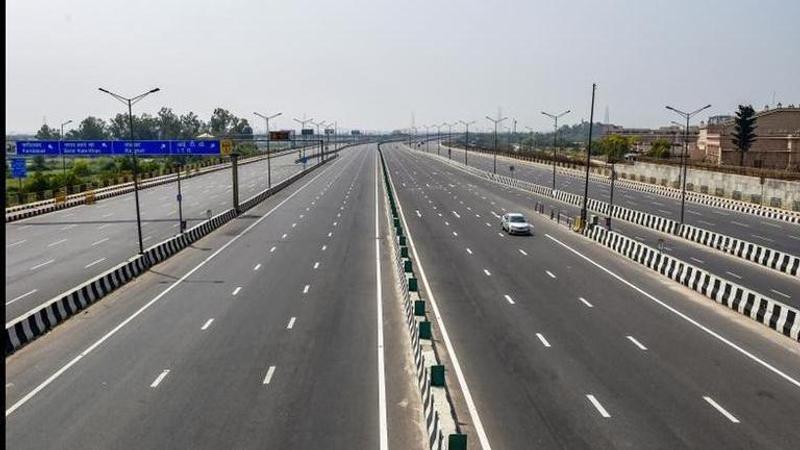Published 19:40 IST, December 8th 2020
Centre not required to take prior environmental clearance for NH projects: SC
The central government is not required to obtain prior environmental or forest clearance under the laws before declaring a stretch as a national highway (NH) and expressing its intention to acquire the land for building, maintenance, or operating such roads, the Supreme Court held on Tuesday.

The central government is not required to obtain prior environmental or forest clearance under the laws before declaring a stretch as a national highway (NH) and expressing its intention to acquire the land for building, maintenance, or operating such roads, the Supreme Court held on Tuesday.
This significant observation was made by the top court in its judgment upholding the notification for acquisition of land for the Rs 10,000-crore Chennai-Salem eight-lane green corridor project.
A bench of Justices A M Khanwilkar, B R Gavai and Krishna Murari dealt with relevant provisions of the National Highways Act, 1956, the National Highways Rules, 1957, and the National Highway Authority of India Act, 1988 while examining the Madras High Court's decision that a prior environmental clearance was needed for the project.
The High Court verdict on April 8, 2019, had held as “illegal and bad in law” the notifications issued under Section 3A(1) of the National Highways Act for the acquisition of specified lands for the construction of the new highway which was part of the larger 'Bharatmala Pariyojna– Phase I5' project.
Justice Khanwilkar, in the 140-judgment, said: There is nothing in the 1956 Act, which impels the Central Government to obtain prior environment clearance before exercising of that power and in issuing a notification under Section 2(2), much less Section 3A expressing its intention to acquire the designated land.
None of these enactments/rules specify any express condition requiring the Central Government to obtain prior environmental/forest clearance before issuing a notification under Section 2(2) declaring the stretch/ section to be a national highway or Section 3A of the 1956 Act to express intention to acquire land for the purpose of the building, maintenance, management or operation of a national highway, as the case may be." The Centre has framed rules under the 1956 Act and even they do not remotely suggest that the government is obliged to obtain prior permission under environmental or forest laws.
“Reverting to the notification issued by the MoEF dated September 14, 2006, even this notification does not constrict the power of Central Government to issue notification under Section... There is nothing to suggest that before expressing an intention to acquire any land for the purpose of the 1956 Act, prior environmental/forest clearance is required,” it said.
The environmental or forest clearance, however, is, required to be obtained by the executing agency in terms of this notification before commencing the actual work or executing the proposed project, it said.
The top court, however, said that it has not expressed any opinion either way on the correctness and validity of the permissions or clearances accorded by the competent authorities under the environment and forest laws.
It said that the orders granting permissions under the environment and forest laws were not the subject matter or the issues before the High Court and hence, it would be open to the affected persons to question the validity before the appropriate forum.
“We have not examined the efficacy of the permissions/clearances granted by the competent authority under the environment or forest laws, as the case may be. If those permissions/clearances are assailed, only then the decisions (previous judgements) ...may be looked at,” it said.
Referring to judgments referred on the legality of the grant of environmental clearance to projects, the top court said that in those cases it was called upon to examine the challenge in the context of permissions given by the competent authority under the environmental laws.
The ambitious 277.3-km-long eight-lane greenfield project connecting Salem and Chennai under the Centre's 'Bharatmala Pariyojana' scheme aims to cut travel time between the two cities by half to about two hours and 15 minutes.
However, it has been facing opposition from a section of locals, including farmers, over fears of losing their land, besides environmentalists who are against felling trees for it.
The project runs through reserve forests and water bodies.
(IMAGE CREDITS:PTI)
Updated 19:40 IST, December 8th 2020




